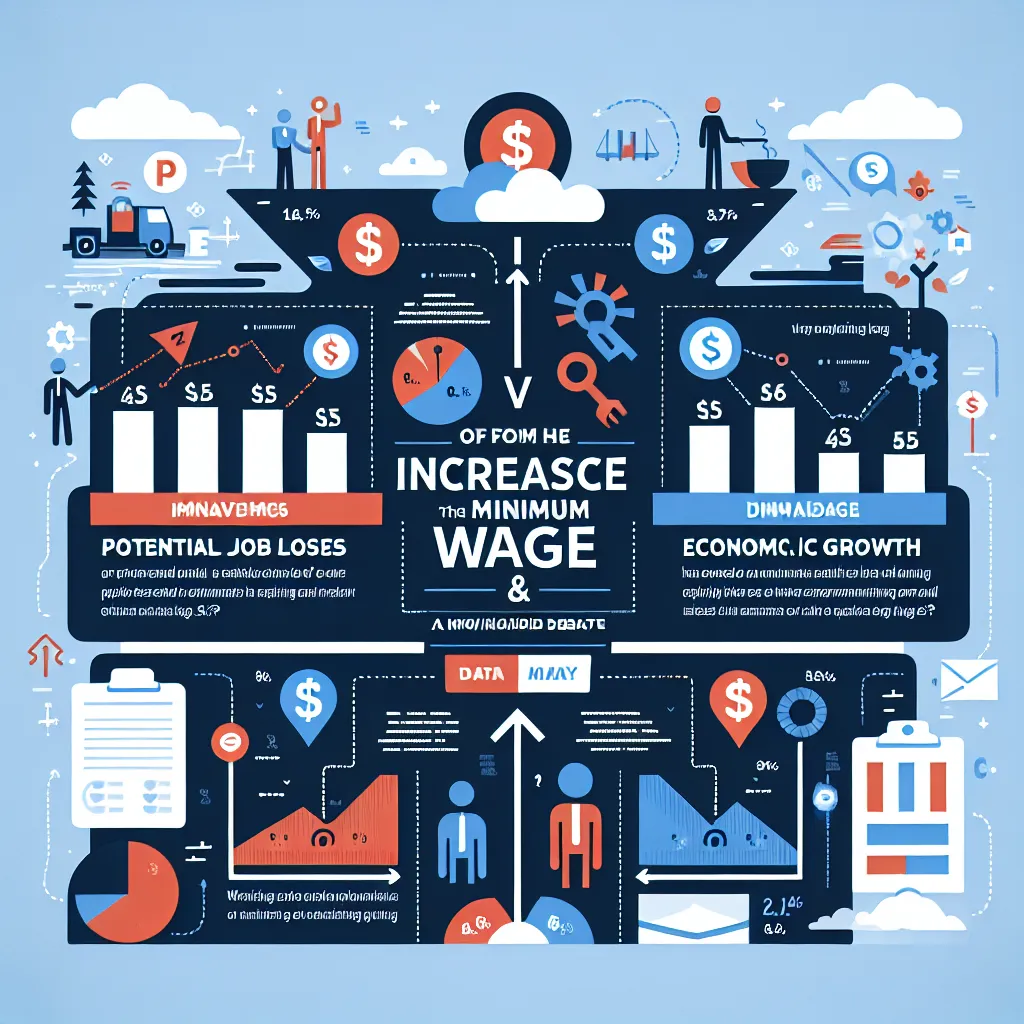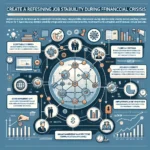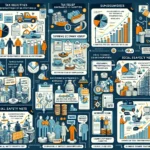The topic of minimum wage increases and their impact on employment is a recurring theme in IELTS Writing Task 2. Based on past exam trends and current economic discussions, there’s a high probability that this subject will continue to appear in future tests. Let’s examine a relevant question that reflects the complexity of this issue:
Some people believe that raising the minimum wage will lead to job losses, while others argue it will stimulate economic growth. Discuss both views and give your own opinion.
Analyzing the Question
This question requires candidates to:
- Discuss the view that increasing minimum wage causes job losses
- Explore the opposing view that it stimulates economic growth
- Provide their personal opinion on the matter
It’s crucial to address all parts of the question to achieve a high band score.
Sample Essay 1 (Band 8-9)
The debate over minimum wage increases and their effect on employment is a contentious issue in many economies. While some argue that raising the minimum wage leads to job losses, others contend that it stimulates economic growth. In my opinion, while there may be short-term adjustments, a well-implemented minimum wage increase can ultimately benefit both workers and the broader economy.
Those who oppose minimum wage hikes often cite potential job losses as their primary concern. They argue that higher labor costs force businesses, especially small enterprises, to reduce their workforce or cut hours to maintain profitability. For instance, a small restaurant might lay off a server or reduce operating hours if forced to pay higher wages. Additionally, some economists suggest that increased labor costs may accelerate automation, replacing human workers with machines in industries like manufacturing or fast food.
On the other hand, proponents of raising the minimum wage argue that it can stimulate economic growth. They contend that when low-income workers earn more, they tend to spend more, increasing consumer demand and driving economic activity. This increased spending can lead to business growth and, consequently, job creation. Moreover, higher wages can improve employee morale and productivity, potentially offsetting the increased labor costs for businesses. Studies have shown that companies like Costco, which pays above-minimum wages, often benefit from lower turnover rates and higher employee satisfaction.
In my view, while there may be short-term adjustments in certain sectors, a gradual and well-planned increase in minimum wage can be beneficial overall. The key lies in implementation. Incremental increases over time allow businesses to adapt, and coupling wage hikes with policies supporting small businesses can mitigate potential job losses. Furthermore, the positive effects of increased consumer spending and improved worker productivity can outweigh the initial costs to businesses.
In conclusion, the impact of minimum wage increases on employment is complex and multifaceted. While there are valid concerns about potential job losses, the potential for economic stimulation through increased consumer spending is equally compelling. A balanced approach, with gradual increases and supportive policies, can help realize the benefits of higher wages while minimizing negative impacts on employment.
(Word count: 345)
 Minimum Wage Impact Infographic
Minimum Wage Impact Infographic
Sample Essay 2 (Band 6-7)
The question of whether raising the minimum wage leads to job losses or economic growth is a topic of much debate. There are arguments on both sides, and I will discuss these before giving my own opinion.
On one hand, some people think that increasing the minimum wage will cause job losses. They believe that if businesses have to pay workers more, they will hire fewer people. For example, a small shop might decide to employ fewer staff if wages go up. Also, some companies might use more machines instead of people to save money on wages.
On the other hand, others argue that higher minimum wages can help the economy grow. They say that when workers earn more money, they spend more. This extra spending can help businesses and create more jobs. Also, workers might be happier and work harder if they are paid more, which can be good for businesses.
In my opinion, I think raising the minimum wage can be good if it’s done carefully. While some jobs might be lost at first, the benefits of people having more money to spend could create new jobs. However, it’s important to increase wages slowly so businesses can adjust.
To conclude, the effects of raising the minimum wage on jobs are not simple. There are risks of job losses, but also chances for economic growth. I believe that if done right, increasing the minimum wage can be positive for workers and the economy.
(Word count: 249)
Key Writing Tips
-
Structure: Both essays follow a clear structure with an introduction, body paragraphs discussing each viewpoint, a paragraph for personal opinion, and a conclusion. This organization is crucial for achieving a high band score.
-
Vocabulary:
- Band 8-9 essay uses more sophisticated vocabulary and phrases like “contentious issue,” “accelerate automation,” and “multifaceted.”
- Band 6-7 essay uses simpler language but still incorporates relevant topic-specific terms.
-
Grammar:
- Band 8-9 essay demonstrates a wide range of complex structures, including conditionals and passive voice.
- Band 6-7 essay uses simpler structures but maintains grammatical accuracy.
-
Coherence and Cohesion: Both essays use linking words and phrases to connect ideas, but the Band 8-9 essay does so more skillfully and variedly.
-
Task Response: Both essays address all parts of the question, but the Band 8-9 essay provides more detailed examples and a more nuanced opinion.
Essential Vocabulary
- Minimum wage (noun) /ˈmɪnɪməm weɪdʒ/ – the lowest wage permitted by law
- Employment (noun) /ɪmˈplɔɪmənt/ – the state of having a paid job
- Economic growth (noun phrase) /ˌiːkəˈnɒmɪk ɡrəʊθ/ – an increase in the amount of goods and services produced per head of the population over a period of time
- Labor costs (noun phrase) /ˈleɪbə kɒsts/ – the total cost of all wages paid to employees
- Consumer demand (noun phrase) /kənˈsjuːmə dɪˈmænd/ – the desire for goods or services by consumers
- Productivity (noun) /ˌprɒdʌkˈtɪvəti/ – the effectiveness of productive effort, especially in industry
- Automation (noun) /ˌɔːtəˈmeɪʃn/ – the use of automatic equipment in a manufacturing or other process
- Workforce (noun) /ˈwɜːkfɔːs/ – the people engaged in or available for work
- Stimulate (verb) /ˈstɪmjuleɪt/ – to encourage or spur on
- Implement (verb) /ˈɪmplɪment/ – to put (a decision, plan, agreement, etc.) into effect
Conclusion
The impact of minimum wage increases on employment is a complex topic that requires careful consideration of multiple perspectives. As you prepare for your IELTS Writing Task 2, practice analyzing different viewpoints and articulating your own opinion clearly and coherently. Remember to use a range of vocabulary and grammatical structures appropriate to your target band score.
For further practice, consider writing essays on related topics such as:
- The role of government in regulating wages and working conditions
- The effects of income inequality on social stability
- The balance between worker rights and business profitability
We encourage you to write your own essay on this topic and share it in the comments section below. This practice will help you refine your writing skills and prepare effectively for the IELTS exam. Good luck with your preparation!


